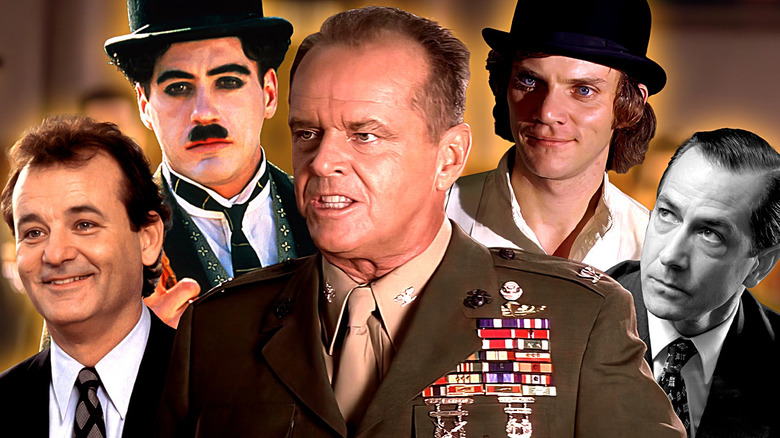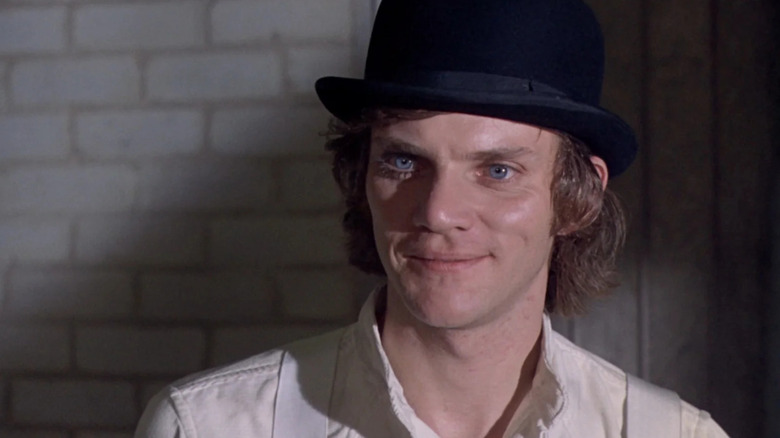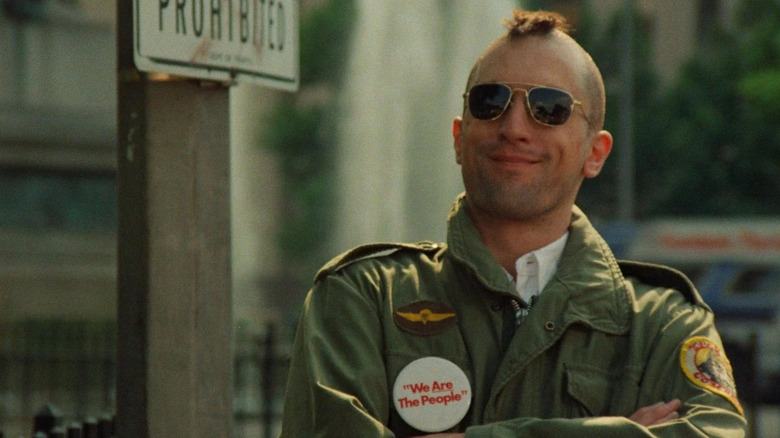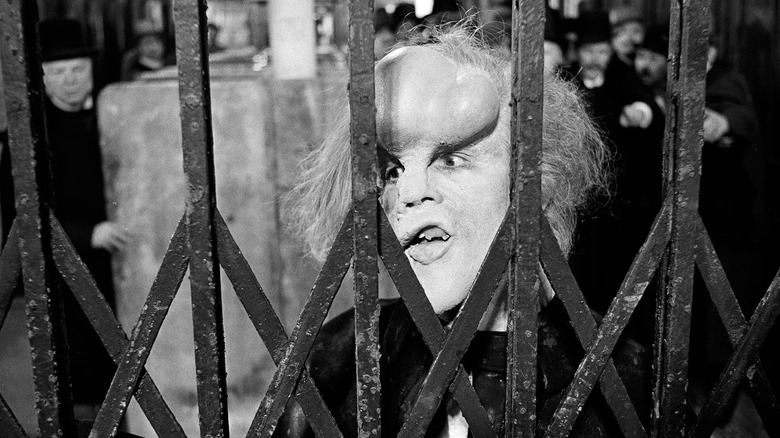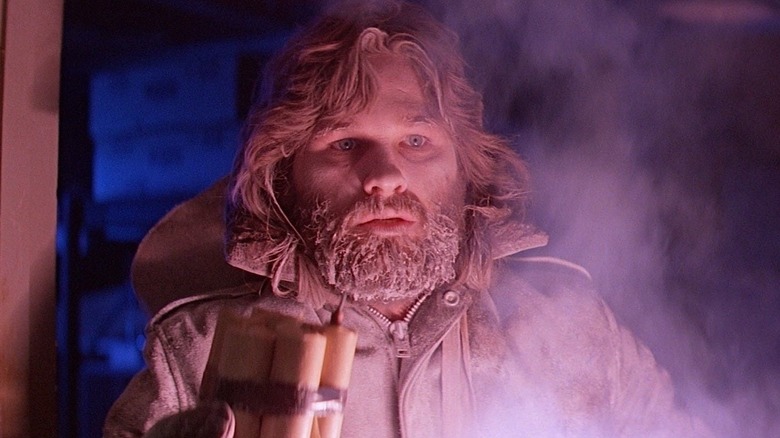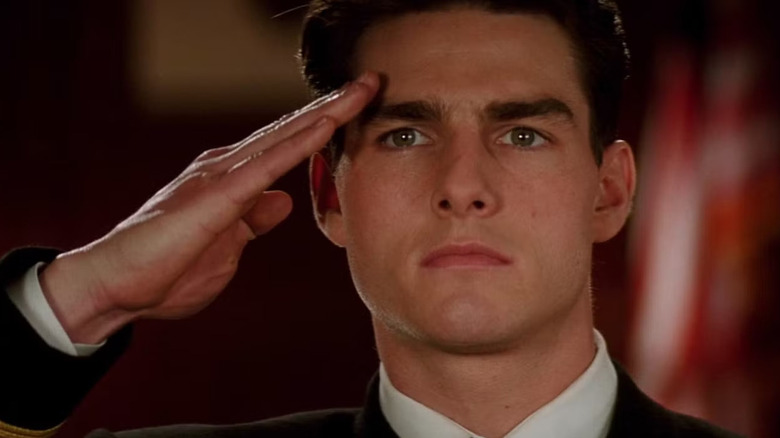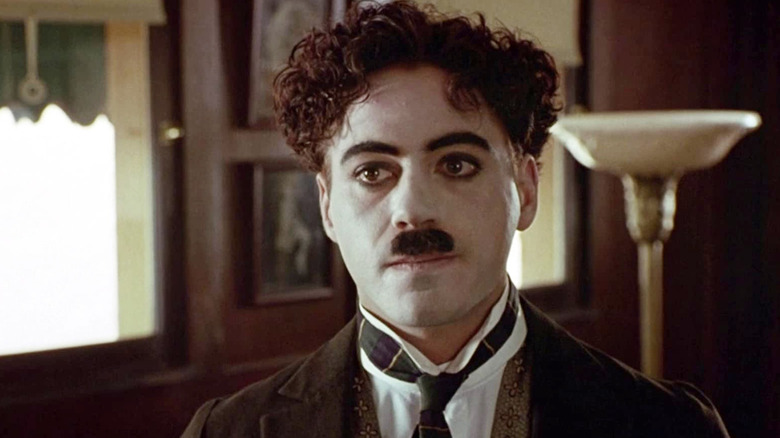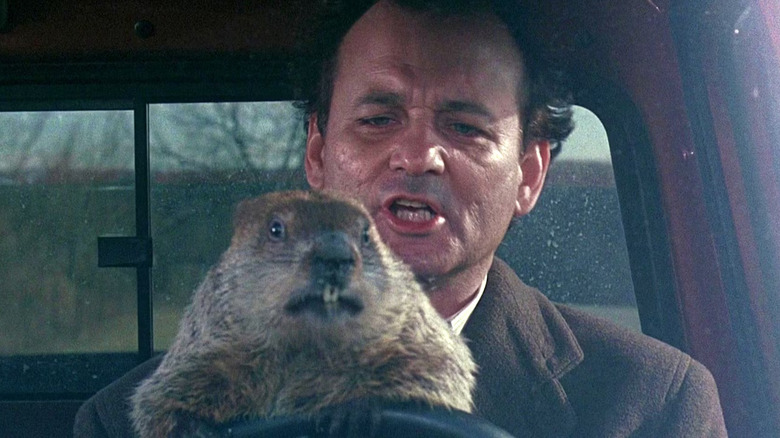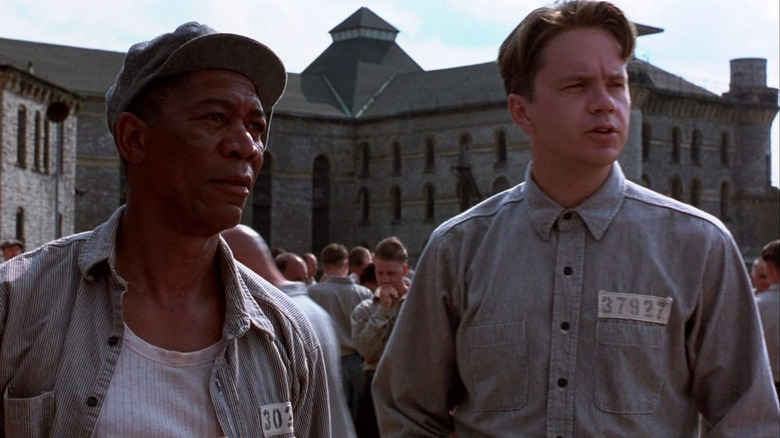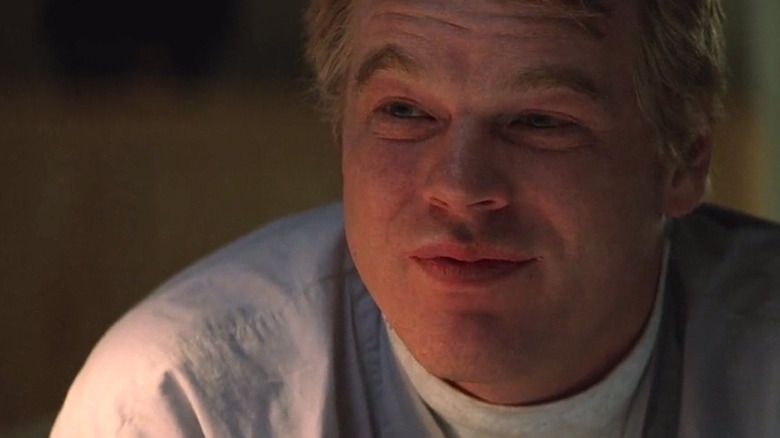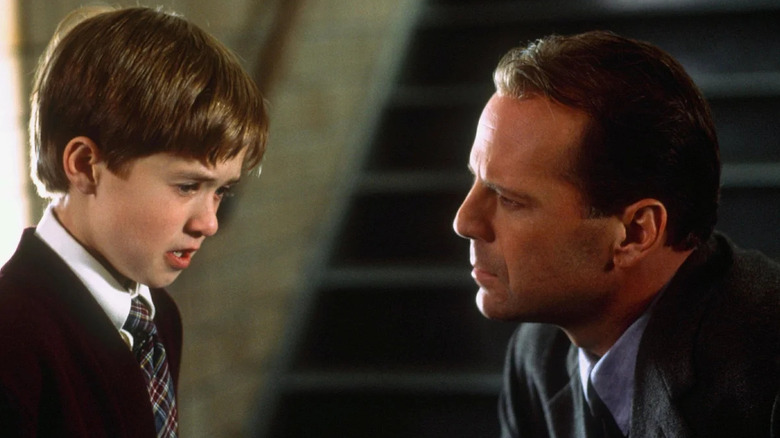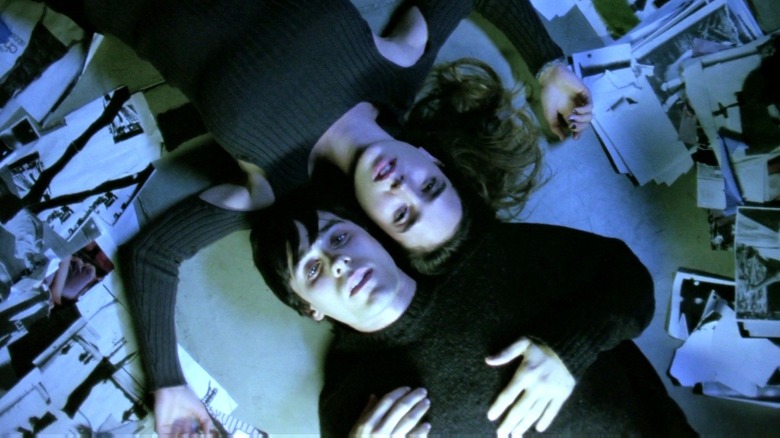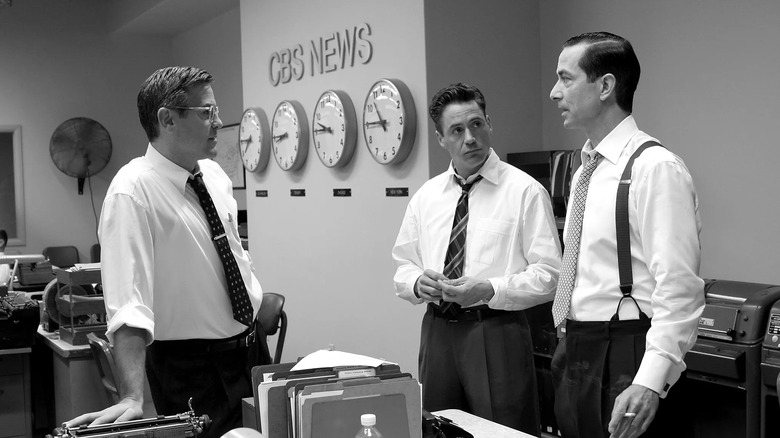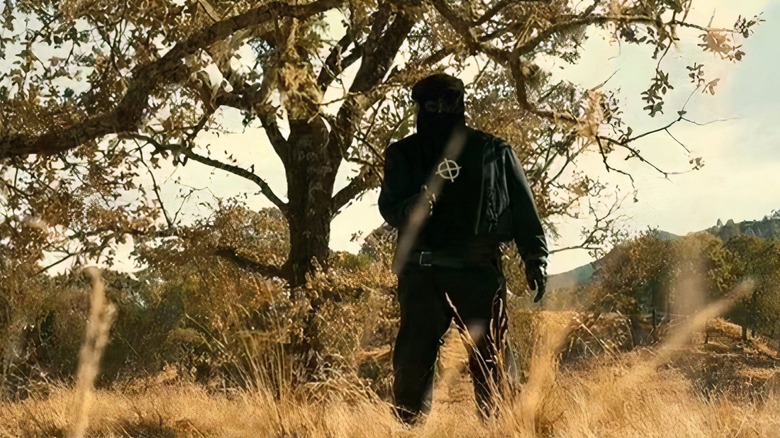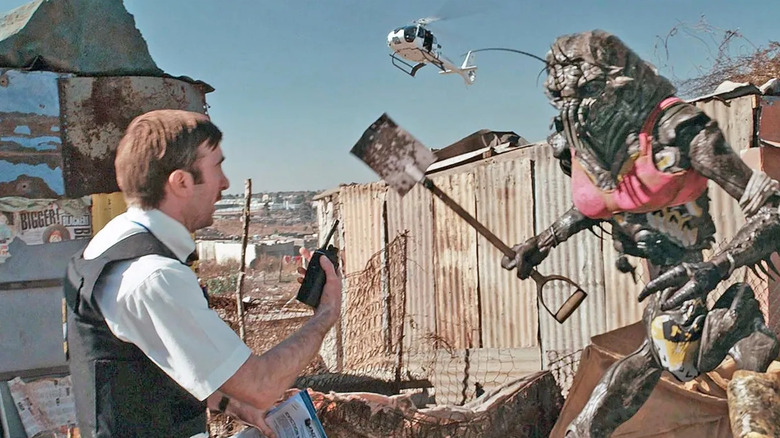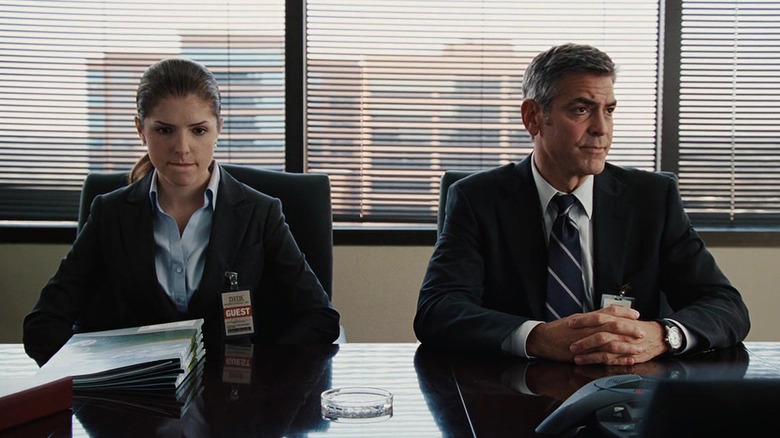15 Best Movies Without An Oscar
We may receive a commission on purchases made from links.
The Academy Awards are an odd tradition. Every year, voters from the Academy of Motion Picture Arts and Sciences (becoming one of these voters is itself a somewhat mystified bureaucratic nightmare) nominate and award feature films in a number of categories.
Even ignoring the flaws in the process — such as potential mis-categorization (see co-leads Zoe Saldaña and Kieran Culkin breezing their way to Oscar wins by competing as "supporting actors") — the prestige and preeminence of the Oscars gives way to a false air of objectivity regarding its honorees. It creates the illusion that winning films are inarguably the best, rather than the beneficiaries of the aggregation of the subjective opinions of a relatively small and unavoidably biased stable of Hollywood elites (winners and voters are all members of the same, small world, after all).
This is all to say, while the Academy Awards are a lot of fun, they are simply unable to honor every film that deserves an award. Below, we've gathered the 15 best movies without an Oscar.
A Clockwork Orange
Directed by legendary filmmaker Stanley Kubrick, "A Clockwork Orange" is a disturbing work of art with something of a controversial legacy. It tells the story of a deranged criminal (Malcolm McDowell) as he is forced into experimental psychological procedures meant to rehabilitate him.
"A Clockwork Orange" was nominated in just four categories at the 44th Academy Awards in 1972, surpassed by several films, including "Fiddler on the Roof," "The Last Picture Show," and "The French Connection" (all of which received eight). The latter film (directed by William Friedkin and written by Ernest Tidyman) single-handedly quashed the chances "Clockwork" had at winning Best Picture, Best Director, Best Adapted Screenplay, or Best Film Editing.
McDowell, who should have at least been nominated for his career-defining performance as the psychopath Alex DeLarge, was snubbed entirely by Academy voters. Had he been in contention, it's highly likely (given his actual omission and the general trend of the year's ceremonies) that McDowell still would have been passed over for Best Actor in a Leading Role in favor of Gene Hackman, who won that year for playing Detective Jimmy "Popeye" Doyle in — you guessed it — "The French Connection."
Taxi Driver
By 1977, the Academy still wasn't too hot on violently disturbed, murderous protagonists, apparently. The year prior to the 49th Academy Awards, Martin Scorsese made "Taxi Driver," a neo-noir tragedy about a Vietnam War veteran (Robert De Niro) whose alienation from society leads to severe mental illness and shockingly violent outbursts.
At the 49th Oscars, "Taxi Driver" received only four nominations, tied with the Italian comedy "Seven Beauties" and the 1976 remake of "A Star Is Born," trailing far behind the 10 nominations received by frontrunners "Rocky" and "Network." De Niro and his young co-star, a 12-year-old Jodie Foster, were nominated for Best Actor in a Leading and Best Supporting Actress respectively for their lauded performances as Travis Bickle and Iris (the exploited child Bickle meets in New York City). They both lost to (Peter Finch and Beatrice Straight from the cast of "Network" .
"Taxi Driver" also lost the race for Best Picture to Sylvester Stallone's "Rocky," as well as Best Original Score to "The Omen." Notably, Scorsese was not nominated in the category of Best Director, which was won by John G. Avildsen for "Rocky."
The Elephant Man
Of course, Robert De Niro was still an Oscars favorite thanks to "The Godfather Part II," and his second statue was imminent — eventually at the expense of another incredible film overlooked by the Academy. David Lynch's "The Elephant Man" is one of the late and legendary filmmaker's finest works, telling a deeply moving story about loneliness and humanity in a way only Lynch could.
At the 53rd Academy Awards in 1981, "The Elephant Man" was actually one of the frontrunners headed into the ceremonies with eight nominations — tied only with Martin Scorsese's "Raging Bull," which starred De Niro as boxer Jake LaMotta. Sadly, the latter film nabbed De Niro his second Best Actor trophy (over "The Elephant Man's" John Hurt) in addition to the award for Best Film Editing.
The real winner of the night, however, was Robert Redford's family drama "Ordinary People," which beat "The Elephant Man" in the categories of Best Director, Best Adapted Screenplay (Christopher De Vore, Eric Bergen, and Lynch losing to Alvin Sargent), and Best Picture. It also lost in the categories of Best Art Direction and Best Costume Design (in both cases to the Roman Polanski romance film "Tess"), as well as Best Original Score (to the musical "Fame").
The Thing
Few movies in the horror or science fiction genres are as iconic or influential as John Carpenter's seminal creature feature, "The Thing." Released in 1982, it starred Kurt Russell as a helicopter pilot stranded in an arctic research facility being terrorized by a shapeshifting alien. Though it has since come to be recognized as a cinematic marvel, the film was initially a commercial dud that made little impact, thanks in part to competition with Steven Spielberg's "E.T. the Extraterrestrial."
Perhaps predictably given its underwhelming box office performance, "The Thing" received almost no attention during the 1983 awards season. It only got two nods from the Academy of Science Fiction, Fantasy, and Horror Films, USA, commonly referred to as the Saturn Awards (in addition two nods from the German Jupiter Awards and a Razzie mention for Ennio Morricone's score, which should be enough to dismiss the latter's organization's credibility outright).
It would have competed in the 55th Academy Awards, but was not nominated in any categories, including those for makeup and visual effects. It's possible that this snub was also a consequence of the popularity of "E.T.," which was, incidentally, nominated in nine categories including Best Picture.
A Few Good Men
When Aaron Sokin began writing the play "A Few Good Men" on cocktail napkins at his bartending job, he likely didn't imagine it would eventually be adapted into one of the best legal thrillers in cinema history. Starring Tom Cruise and a full-tilt Jack Nicholson as U.S. soldiers on opposite sides of a court case, the film is remembered for its brilliant plotting, uncanny characters, and sharp dialogue. It garnered widespread acclaim, and is currently regarded as a highpoint in the careers of both Cruise and Nicholson.
"A Few Good Men" got only a little attention from the Academy, however. Sorkin, Cruise, and director Rob Reiner were all passed over completely in the nomination process. The ceremony itself was largely dominated by the Clint Eastwood revenge western "Unforgiven," which was nominated for nine awards (tied for most with the historical drama "Howards End") and took home four. Among them were Best Picture, Best Film Editing, Best Supporting Actor, all three of which it won over "A Few Good Men" (with Nicholson losing to Gene Hackman for his performance as the callous sheriff of Eastwood's film). "A Few Good Men" was also nominated for Best Sound, but it lost that award as well to Michael Mann's "The Last of the Mohicans."
Chaplin
Like "A Few Good Men," the 1992 film "Chaplin" was largely overlooked by the Academy at the 65th Oscars — perhaps most glaringly in the case of its star, Robert Downey Jr. At the time, Downey was far from the rare combination of bankable blockbuster star and prestige talent he was when he won his first statue for playing Lewis Strauss in Christopher Nolan's 2023 historical epic "Oppenheimer." In fact, his involvement in the film was enough for tens of millions of dollars in financing to be pulled, nearly leading to the cancellation of "Chaplin" entirely. Once producers found the money, however, Downey pulled out all the stops and delivered a performance worthy of his first — and as of writing only — nomination for Best Actor.
Unfortunately, the future "Iron Man" star not only had Clint Eastwood to compete with, but Al Pacino, who ultimately took home the aforementioned award for his performance in "Scent of a Woman." "Chaplin" further lost in Best Art Direction to "Howards End" and Best Original Score to the animated Disney musical "Aladdin."
Groundhog Day
There's no denying that 1993's "Groundhog Day" is one of the greatest comedies ever made, and a testament to the power of Bill Murray and Harold Ramis creative partnership (though the film itself left their friendship in shambles until shortly before Ramis' death in 2014). Each moment of the endlessly repeating story was painstakingly planned, with Murray having to truly suffer for his art on set in order to bring some of its most memorable scenes to life.
Despite all of this, "Groundhog Day" was completely ignored by the Academy for the 66th Oscars in 1994. Sure, Best Picture may have been a tough sell given that "Schindler's List" came out the same year and prevailed in seven out of the 12 categories it was nominated for — but Murray's performance as sarcastic weatherman Phil Connors is just as powerful as Tom Hanks' Best Actor-winning dramatic turn in "Philadelphia."
For that matter, there's also no denying the genius of Danny Rubin and Ramis' screenplay, which boasts one of the most original concepts devised for the screen (even if it's been endlessly repeated itself since) and deserves just as much praise as Jane Campion's winning screenplay for "The Piano." "Groundhog Day" is arguably just one of many examples of the Academy not taking comedies seriously to the detriment of the awards themselves.
The Shawshank Redemption
When "The Shawshank Redemption" came out over 30 years ago, it was a total box office flop. Now, the prison drama about second chances and perseverance is regarded as one of the greatest movies ever made, as well as one of the best adaptations of a Stephen King story.
It would be wrong to say the Academy was ignorant of how good "The Shawshank Redemption" was, as it was recognized in a respectable seven categories at the 67th Oscars ceremonies in 1995. Rather (as is the case with many movies included on this list) the film simply had the misfortune of being released in a year crowded with a wide variety of quality filmmaking. In 1995, "The Shawshank Redemption" had to compete with "Pulp Fiction," "The Lion King," and "Forrest Gump."
The latter film beat "Shawshank" out for Best Picture, Best Actor (with Tom Hanks winning over Morgan Freeman), Best Adapted Screenplay, and Best Film Editing. Writer-director Frank Darabont was, bafflingly, not nominated for Best Director. "Shawshank" also lost Best Original Score (to "The Lion King"), Best Sound ("Speed"), and Best Cinematography ("Legends of the Fall").
Magnolia
After losing the Best Actor race for "Born on the Fourth of July" and "Jerry Maguire" and being passed over completely for "A Few Good Men," 2000 was arguably Tom Cruise's year to finally win an Oscar. Reinventing himself as an actor, he took a role in Paul Thomas Anderson's landmark psychological drama, playing a motivational speaker inspired by a figure from the real world. Over 20 years after its release, it is regarded as an unparalleled masterpiece.
Cruise was nominated for Best Supporting Actor at the 72nd Academy Awards in 2000, but somehow lost to Michael Caine for "The Cider House Rules." Anderson was passed over completely for Best Picture and Best Director and lost Best Original Screenplay to Alan Ball for "American Beauty." Philip Seymour Hoffman was also snubbed. Singer-songwriter Aimee Mann, whose music inspired the film and whose song "Save Me" was nominated for Best Original Song, lost to Phil Collins, who of course wrote the sweeping ballad "You'll Be in My Heart" for "Tarzan."
The Sixth Sense
M. Night Shyamalan is, admittedly, not a director most would argue is missing an Academy Award on their shelf. But while most of his filmography ranges from okay to unwatchable, we'd argue "The Sixth Sense" is not only his best film technically, but was deserving of at least one gold statue.
The horror classic was actually nominated in six categories at the 72nd Oscars (double the amount of nominations received by "Magnolia") but won in none of them. "American Beauty" was the favorite of the night, beating Shyamalan and "The Sixth Sense" in the categories of Best Director (Sam Mendes), Best Original Screenplay (Alan Ball), and Best Picture. Michael Caine's "Cider House Rules" win also boxed out 11-year-old Haley Joel Osment for Best Supporting Actor — Toni Collette, meanwhile, lost Best Supporting Actress to Angelina Jolie for "Girl, Interrupted." Bruce Willis was not nominated. Finally, the film lost Best Film Editing to "The Matrix."
Requiem for a Dream
Given that "Requiem for a Dream" was such an upsetting film that director Darren Aronofsky had a hard time casting it, it isn't exactly surprising that it wasn't an awards darling upon release. It's also not surprising that Jared Leto, one of the few actors who was drawn to its subject matter, has never been the same since he made it.
Leto was not nominated at the 73rd Academy Awards in 2001, though it's hard to imagine he would've stood a chance in the Best Actor race against Russell Crowe for "Gladiator." The Ridley Scott film was the clear winner of the evening, taking home Best Picture, while Ang Lee's "Crouching Tiger, Hidden Dragon" and Steven Soderbergh's "Traffic" ate up its scraps. "Requiem for a Dream," meanwhile, received just one nomination — Best Actress for Ellen Burstyn. She lost to Julia Roberts ("Erin Brockovich").
Good Night, and Good Luck
George Clooney's historical newsroom drama "Good Night, and Good Luck" has proved to have a surprising amount of cultural staying power given its controversial black and white presentation and period setting. As of writing, it's been adapted into a Broadway show and is being adapted into a TV series. Clooney, David Strathairn, Robert Downey Jr., and an ensemble of other A-listers carry this drama about broadcasting in the age of McCarthyism.
"Good Night, and Good Luck" was toward the front of the pack in terms of nominations heading in the 78th Academy Awards in 2006, outnumbered only by the romantic neo-western "Brokeback Mountain" (which, in hindsight, had the most cultural staying power of any film nominated that year). But Ang Lee only robbed Clooney of the Best Director award that night — while the crime drama "Crash" infamously took home Best Picture and Best Original Screenplay, both of which "Good Night, and Good Luck" was up for. It also lost Best Art Direction and Best Cinematography to "Memoirs of a Geisha," while Strathairn lost the Best Actor race to Philip Seymour Hoffman (for playing the titular role in "Capote"). Neither Clooney nor Downey were nominated for their work.
Zodiac
Of all the films on this list, "Zodiac" was probably the most tragic victim of crowded competition. David Fincher's effortlessly atmospheric and bone-chilling crime drama still excites today, and stands out as debatably the director's best work. A key element of its success is its unsettling conclusion, which draws the audience away from the easy answers expected of the genre to something much more compelling.
At the 80th Academy Awards in 2007, "Zodiac" was left out in the cold. As shocking as this is, it becomes less so when you consider that the frontrunners that year were the Coen Brothers' "No Country for Old Men" and Paul Thomas Anderson's "There Will Be Blood," either one of which could've reasonably swept the entire ceremony. If they weren't enough, the Best Picture category was rounded out by "Atonement," "Michael Clayton," and "Juno."
District 9
"District 9" was an outlier in a lot of ways when it was released in 2009, and it's indeed surprising that it got nominated at all at the 82nd Academy Awards. It's not often you see a mockumentary about aliens on the Oscars nomination list, after all, much less in four categories. That being said, "District 9" is one of the most challenging science fiction movies released in the 2010s, and more than deserved to be considered alongside the year's best films even if the subject matter was far from the usual Oscar bait.
Sadly, 2009 was also the year "Avatar" was released, meaning its safest bet of Best Visual Effects was a foregone conclusion heading into the ceremonies. Meanwhile, Best Adapted Screenplay went to "Precious: Based on the Novel 'Push' by Sapphire," and Best Picture and Best Film Editing went to "The Hurt Locker."
Up in the Air
Joining "District 9" in not-winners' circle from the 82nd Academy Awards is "Up in the Air," Jason Reitman's deeply moving dramedy about corporate consultants whose entire job is to fly around the country to fire people. The film's writing and performances are so refreshingly in-sync they take a viewer straight to the clouds — even though its plot will have you crashing right back down to reality.
"Up in the Air" also lost Best Picture to "The Hurt Locker," with Reitman losing Best Director to Kathryn Bigelow as well. George Clooney made it into the Best Actor pool but was drowned out by Jeff Bridges for "Crazy Heart," while both Anna Kendrick and Vera Farmiga lost Best Supporting Actress to Mo'Nique for "Precious." (Jason Bateman was not nominated in the Best Supporting Actor category, though no actor could've won over Christoph Waltz for "Inglourious Basterds.") "Precious" also beat out "Up in the Air" for Best Adapted Screenplay.
As crushing as this must've been at the time, "Up in the Air" is as beloved if not more so than any of the films that overtook it. The Academy may offer immediate gravitas to its honorees, but if this list has shown us anything, it's that time turns an Oscar into little more than a dusty statue on a shelf.
